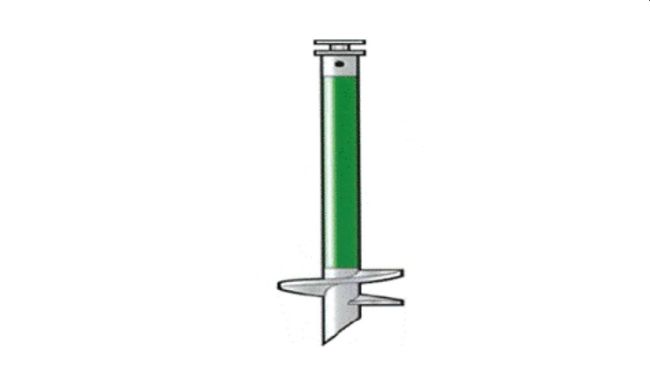A decision of the Federal Court illustrates the advantages associated with the summary judgement/trial approach used by the Court. Techno-Pieux Inc. v. Techno Piles Inc. 2022 FC 721
The Facts
The plaintiff is a Quebec-based supplier of helical piles and associated materials and machinery for residential and industrial applications. It markets and sells its products throughout Canada and abroad. The plaintiff owns four registered trademarks relating to the trademarks TECHNO PIEUX and TECHNO METAL POST and two design versions of the marks which include a representation of a metal post as shown below

collectively the "Registered Trademarks".
The plaintiff also asserted the copyright in the two design versions of its marks was infringed.
The defendants are two Alberta based companies which distributed the plaintiff's goods and services under Distributorship and Procurement Agreements. The relationship between the plaintiff and the defendants broke down and the plaintiff terminated the agreements between them. In response the defendants began to carry on business under the names TECHNO PILES MEDICINE HAT, TECHNO PILES FORT MCMURRAY and TECHNO PILES, collectively the should this be two words "Tradenames". The defendants also claimed that the plaintiff had no right to terminate the agreements which they said remained in force.
Trademark Infringement
The plaintiff sought a declaration that the defendants infringed its Registered Marks, contrary to sections 19 and 20 of the Trademarks Act. The plaintiff alleged that the Tradenames were confusingly similar to the Registered Marks.
In determining whether trademarks or trade names are confusing the court must have regard to all the surrounding circumstances including
- the inherent distinctiveness of the trademarks or trade names and the extent to which they have become known;
- the length of time the trademarks or trade names have been in use;
- the nature of the goods, services or business;
- the nature of the trade; and
- the degree of resemblance between the trademarks or trade names, including in appearance or sound or in the ideas suggested by them.
The plaintiff also asserted claims for depreciation of goodwill and passing off.
Copyright Infringement
The plaintiff maintained that copyright subsisted in the two design marks. As there was no evidence of direct copying, the plaintiff submitted that copying should be inferred from the defendants' access to the designs and the similarity between the disputed designs.
The Motions for Summary Judgement
The plaintiff moved for summary judgement relating to its claims under the Trademarks Act and the Copyright Act. The defendants brought a cross motion alleging that the plaintiff's Registered Trademarks should be expunged.
The Court may grant summary judgment where it is satisfied there is no genuine issue for trial. When the Court can make the necessary findings of fact, apply the law to those facts, and achieve a fair and just determination on the merits, it is appropriate to grant a motion for summary judgment. Although the burden falls on the moving party, both parties must put their best foot forward. This requires the responding party to present evidence of specific facts showing that there is a genuine issue for trial. If the Court is satisfied there is a genuine issue of fact or law for trial regarding a claim or a defence, the Court may determine that issue by way of summary trial and make any order necessary for the conduct of the summary trial. The Federal Court rules are different from the rules relating to summary judgement under the Ontario Rules of Civil Procedure.
Both parties filed extensive evidence supporting their respective positions. The Chief Justice reviewed the evidence and provided a useful blueprint for considering a confusion analysis. He concluded that four of the five specific factors to be considered in determining whether trademarks or trade names are confusing, as set out in paragraphs (a)–(c) and (e) of the Trademarks Act, weighed in favour of the plaintiff. The defendants did not demonstrate a genuine issue for trial regarding those four factors. However, the defendants met the low bar for demonstrating a genuine issue for trial regarding the fifth factor, namely, the nature of the trade. This factor potentially has an important impact on the overall confusion analysis. As a result, the plaintiff's motion for summary judgment for infringement under the Trademarks Act were dismissed. The motion concerning the other claims asserted by the plaintiff were also dismissed.
The defendants' cross motion for summary judgement relating to invalidity of the plaintiff's Registered Trademarks was also dismissed as there were genuine issues to be resolved. As success was divided a modest order for costs was made. However, the Judge ordered that the underlying action be determined by way of a summary trial before him.
Comment
The decision of the Chief Justice confirms that the Federal Court will attempt to reduce the time and costs associated with disputes before it. Motions for summary judgment and /or summary trial should always be considered.
Toronto, December 2022
The content of this article is intended to provide a general guide to the subject matter. Specialist advice should be sought about your specific circumstances.


